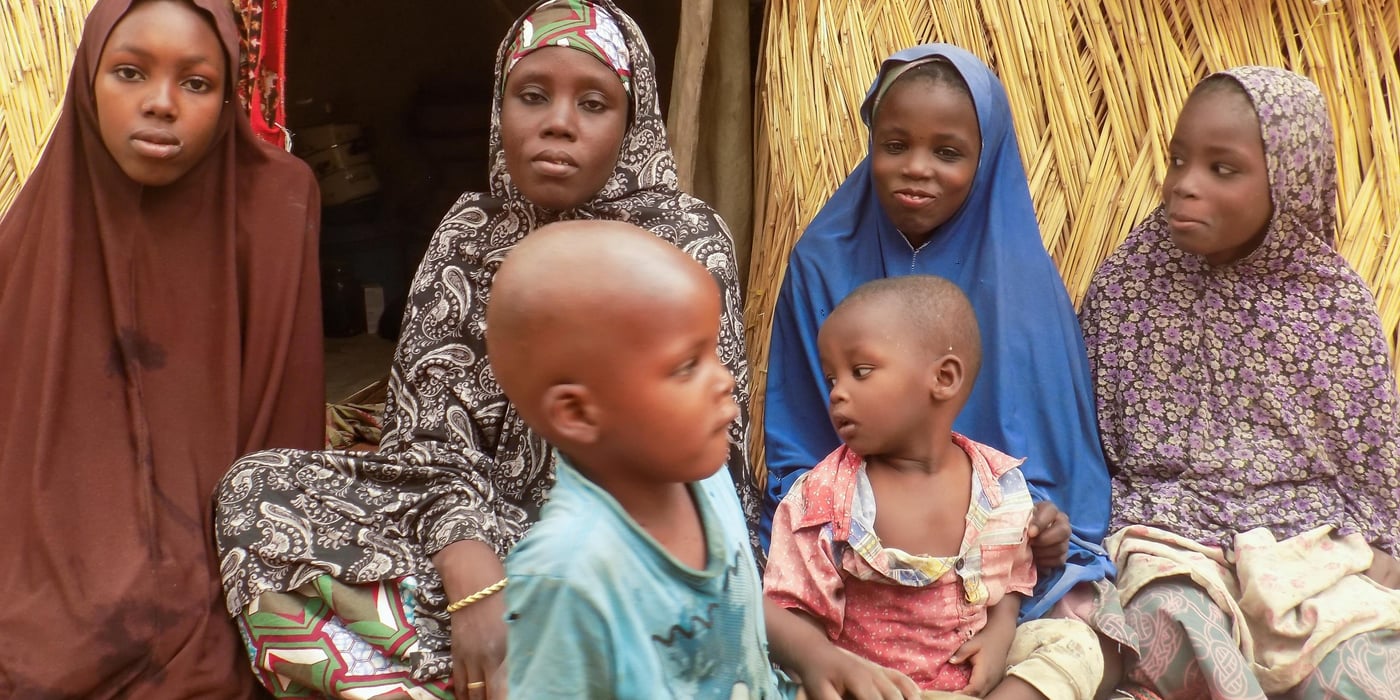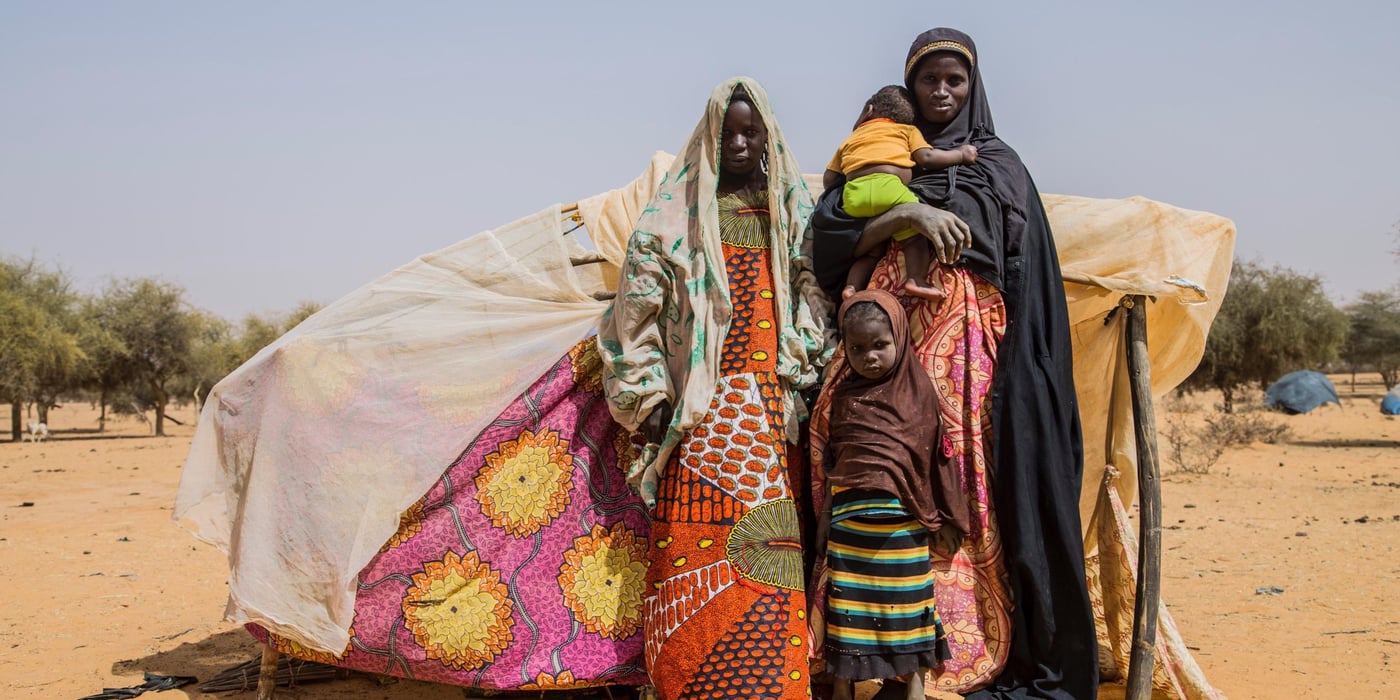
Thirty-year-old Yakaka Lawan has had to work very hard to provide the basic necessities to her family since they fled their village in Borno state, north-east Nigeria following clashes between armed opposition groups and security forces.
Lawan’s family is among over 1.6 million people forced to flee their homes in the north-eastern Borno, Adamawa and Yobe states because of ongoing hostilities between armed opposition groups and security forces. The food security situation in the region remains concerning as conflict limits the land available for crop cultivation and some 3.7 million people are at critical risk of food insecurity.
Left everything behind
Lawan and her family, leaving everything behind, walked for five days in search of safety from the hostility that engulfed their community. Lawan’s husband, Abubakar Lawan, hurt both legs during the five-day walk to Maiduguri, and has been unable to walk properly since.
“With nine children and a disabled husband to care for, I have to make the best out of what we have,” says Lawan.
With no savings or source of livelihood, Lawan’s only option was to send her children to the streets to beg for alms.
“I used to send four of them out. Whatever they brought home was shared among all nine of them. If there were any leftovers, my husband and I ate those. It was the only way we could avoid dying of hunger,” she says. The Norwegian Refugee Council’s (NRC) operation aims to make this type of suffering amid displacement a burden no adult or child has to bear.
Distributing vouchers for food
In Borno, we have been providing emergency food assistance to meet the needs of communities and enhance their access to food by distributing electronic vouchers. The project was co-funded by the Norwegian Ministry of Foreign Affairs (NMFA) and the Swiss Development Commission (SDC).
“We issued electronic vouchers to 450 households in Maiduguri that gave them access to a variety of food items from the local market,” says our local food security officer Erenje Fidelis.
Receiving monthly vouchers worth 28,800 naira (USD 82), they are able to purchase the food they want, including rice, maize, sugar, beans, vegetable oil and semovita.
“The project offered families different meal options to select from and this ensured that they ate and stayed healthy,” Fidelis adds.
Sustaining the gains
In addition to providing life-saving food assistance to thousands of displaced people in north-east Nigeria, we trained over 4,000 people about vegetable crop production techniques to ensure that they have access to food and an ability to generate income to buy the other things they need.
“Last year, I harvested more than 1,400 cabbages. My family ate some, and we sold more than 800 of them for 250 naira (USD 0,71) per cabbage,” Lawan recounts.
“My children no longer have to beg on the streets. Now, they are busy helping me in the garden, because they know that is where their food and school fees will come from,” she says.
Our programme will continue to build on its current humanitarian path and strengthen its interventions in all its sectors and continue to provide life-saving assistance to people affected by displacement in north-east Nigeria. Ultimately, we will support the initiatives of critical stakeholders in the region in searching for an end to the prolonged conflict.




